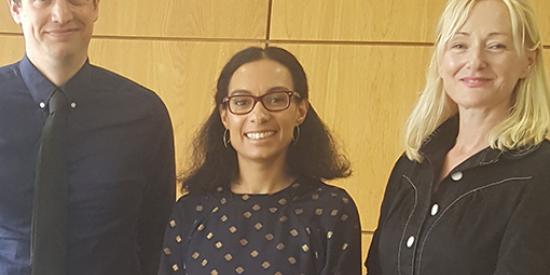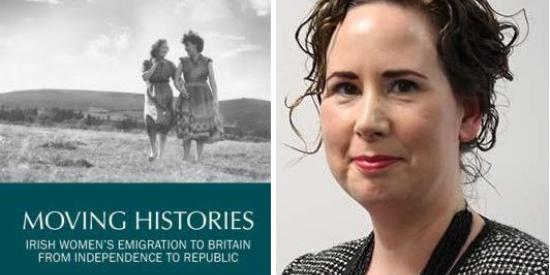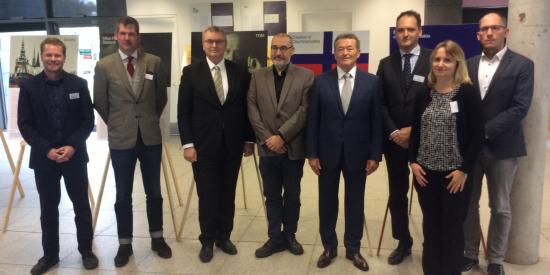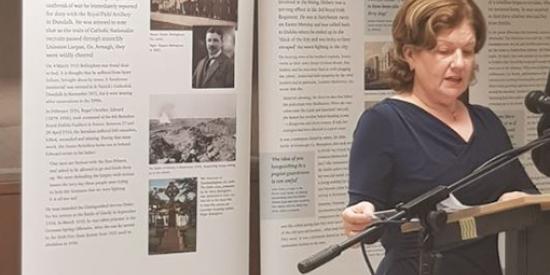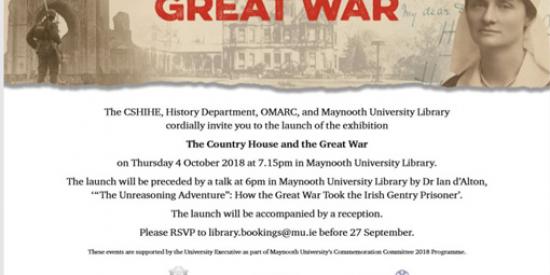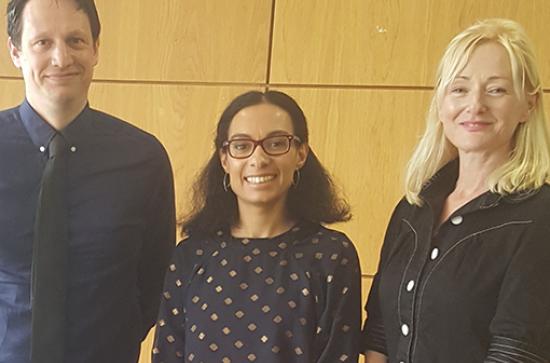
A Landmark in International Law: The Creation of the Permanent Court of International Justice and its Legacy – an Analysis of the Development of the Doctrine of Universal Jurisdiction and its Contemporary Use and Potential
The Commemorations Fund kindly support a Seminar organised by Dr Noelle Higgins from the Department of Law on 29th April 2019, recalling the creation of the landmark international court, the Permanent Court of International of Justice, and analysing its legacy in the realm of the doctrine of universal jurisdiction. The speakers were Dr Mark Chadwick from Nottingham Law School, Nottingham Trent University, Dr Amina Adanan, Lecturer in the Department of Law, and Ms Jean Molloy, who is currently undertaking a PhD programme in the Department under the supervision of Dr Noelle Higgins. Dr Higgins also facilitated the event.
The Permanent Court of International Justice
The international legal system shares many of the same characteristics displayed by domestic legal systems, however, the systems differ greatly with respect to enforcement, because international courts are a relatively new invention. While the idea for an international court had been suggested by international jurists since the 14th century, the idea for the creation of an international court of justice was proposed at the First Hague Peace Conference in 1899. While a draft convention for a permanent Court of Arbitral Justice was drafted at the Second Hague Peace Conference in 1907, no such body was never established. World War I, and the atrocities committed during this conflict, refocused the attention of States on the creation of an international court, and Article 14 of the Covenant of the League of Nations provided that the League could investigate the establishment of an international court. The Statute of the Permanent Court of International Justice was then adopted in Geneva on December 13, 1920, and the Court first sat on 30 January 1922, at the Peace Palace, in The Hague. The Court operated until 1940, and during this time, settled 29 contentious cases and issued 27 advisory opinions.
The Seminar
The seminar began with a discussion of one of the important decisions of the Court, in the Lotus case, and the Court’s landmark pronouncement on the doctrine of universal jurisdiction, by Dr Mark Chadwick. Dr Chadwick’s talk was entitled: 'Here be monsters: the Lotus case, universal jurisdiction and high seas piracy'. The second presentation, by Dr Amina Adanan and Ms Jean Molloy, then focused on the legacy of the Court in this area, and analysed how universal jurisdiction can be used to prosecute foreign fighters in contemporary conflicts. This talk was entitled: ‘After Lotus: the use of extraterritorial jurisdiction to prosecute foreign fighters’.
Speakers
Dr Mark Chadwick
Dr Mark Chadwick is a lecturer at Nottingham Law School, at Nottingham Trent University, where he teaches in the fields of International Criminal law, EU Law and Comparative Law, and where he is also a member of the Centre for Rights and Justice. Mark has worked as with the University of Nottingham’s Human Rights Law Centre, the International Criminal Court and the International Bar Association.
Mark’s research focuses on issues in international criminal justice. He has a particular interest in the processes by which States claim jurisdiction over suspected perpetrators of international crime, including via the notion of “universal jurisdiction”. Mark published a monograph, Piracy and the Origins of Universal Jurisdiction: On Stranger Tides, in January 2019 with Brill.
Dr Amina Adanan
Amina is a lecturer in the Department, who has a research and teaching focus in the field of international law. Her research concentrates in particular on prosecution of international crimes, and her (fairly) recently completed PhD was on the topic of Universal Jurisdiction, and was entitled: ‘Allies and enemies, past and present: An analysis of the rationale for the development of universal jurisdiction over serious crimes under international law’. Prior to undertaking her PhD, Amina completed an MA (International Relations) in DCU and an LL.B and BA International (Legal Science & Italian) in NUI Galway, and she has worked for a number of NGOs in the field of international justice.
Ms Jean Molloy
Jean is currently a PhD student in the Department, and her research focuses on Sovereignty, Self-Determination and ISIS. Jean undertook her degree at the University of Melbourne in Criminology and Anthropology, and she also has obtained a masters in Criminology from DCU. Jean is also a recent graduate of the Department’s LLM in International Justice, and she has worked on a number of projects in the field of international justice, including the Scholars at Risk Clinic. She also lectures and tutors in the Department of Law.



